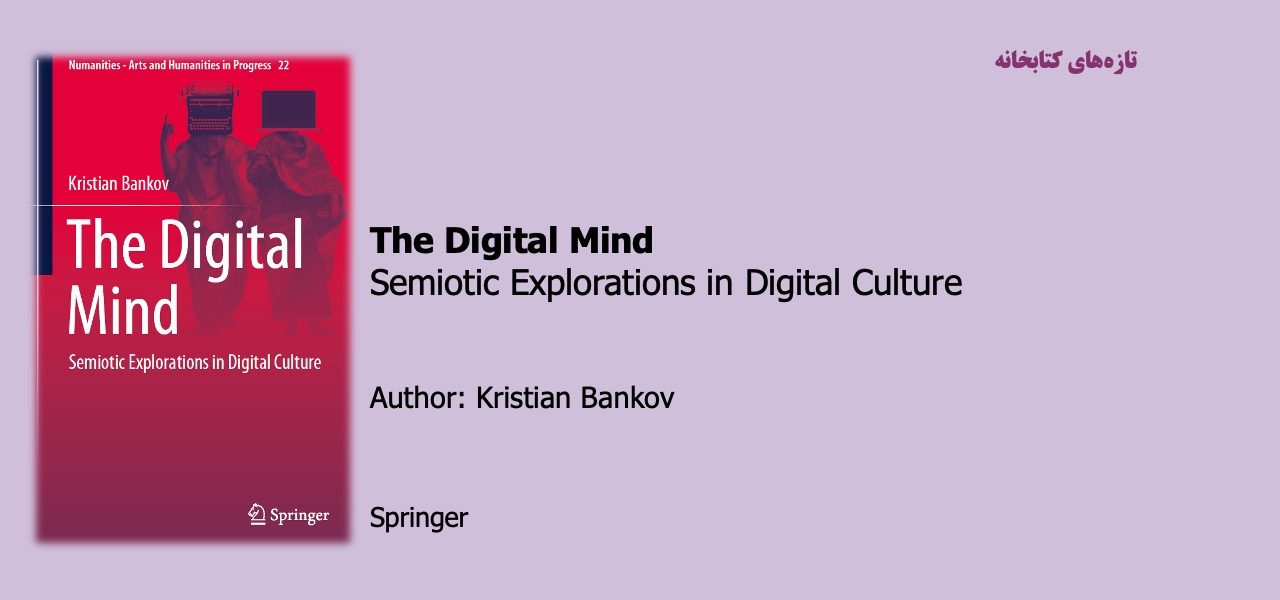The Digital Mind

Semiotic Explorations in Digital Culture
This book took shape during the most unusual time inwhich I have ever lived in—that of social isolation due to COVID-19. Fate sent me to China on 3 January 2020, with the intention of teaching and doing research until February 16 at the beautiful Sichuan University in Chengdu. In mid-January, people began to talk about the mysterious virus, but of course then no one could have guessed what would happen. On January 22–۲۳, anti-epidemiological measures were issued at the university campuses, and at midnight on the 25th at the height of the Chinese New Year, I travelled to Yangon, Myanmar, for a planned participation in a three-day international conference. After that, events in China unfolded apace, although the official information was not so alarming. I was determined to return to Chengdu on January 31 and complete my academic mission normally; however, thanks to the insistence of my colleagues and friends Minglai Dong and Gary 饶广, I eventually changed my plans and returned directly to Sofia. They are the first people I would like to thank here, as their advice protected me from months of isolation after most airlines started suspending flights to and from China during the next two weeks.
I became one of the first people to be quarantined in Bulgaria, and this was the key moment when the idea of starting to write this book was born. It comes as a continuation of my commitment to Sichuan University. My esteemed colleague and friend Prof. Dario Martinelli also contributed greatly to this. It was he who created the series Numanities for Springer, in which this project is a perfect fit.Many thanks to Dario! The illusion that the ideal conditions for writing a book arose from the fact that I was still watching events in Sofia from the sidelines, there were no risks and mass fear, only weak preventive measures. This prompted me to set very optimistic deadlines for the manuscript, which, after the pandemic broke out and our lives turned upside down, proved impossible to meet. Thanks for the great patience of the supervising editor from Springer Sanjievkumar Mathiyazhagan. This book brings together my research on digital culture over the last 10 years.
Ten years ago, the semioticians who were studying digital culture could be counted on the fingers of one hand. Today, almost everyone is doing it and a lot of books on this topic have appeared, not always competently written. Digital culture is evolving at such a rate that, as a subject of study at this stage, it does not presuppose the construction of a systematic theory. However, this has not prevented such attempts from being made. I chose the form of explorations, because (1) I am an outsider to digital culture, although very informed, very experienced and very committed one; (2) I believe that we are now in the phase of insights which, after quantitative accumulation thanks to the research of many semioticians, will provide a qualitative synthesis for the necessary changes in the classical paradigms.
مطالب مرتبط

کتاب تمرین درمان شناختی – رفتاری برای مشکلات سلامت روان
۱ / اردیبهشت / ۱۴۰۴

درآمدی بر روانشناسی خرد
۱ / اردیبهشت / ۱۴۰۴

سرشت – چگونه سیمکشی مغزهای ما هویت ما را تعیین میکنند؟
۱ / اردیبهشت / ۱۴۰۴

